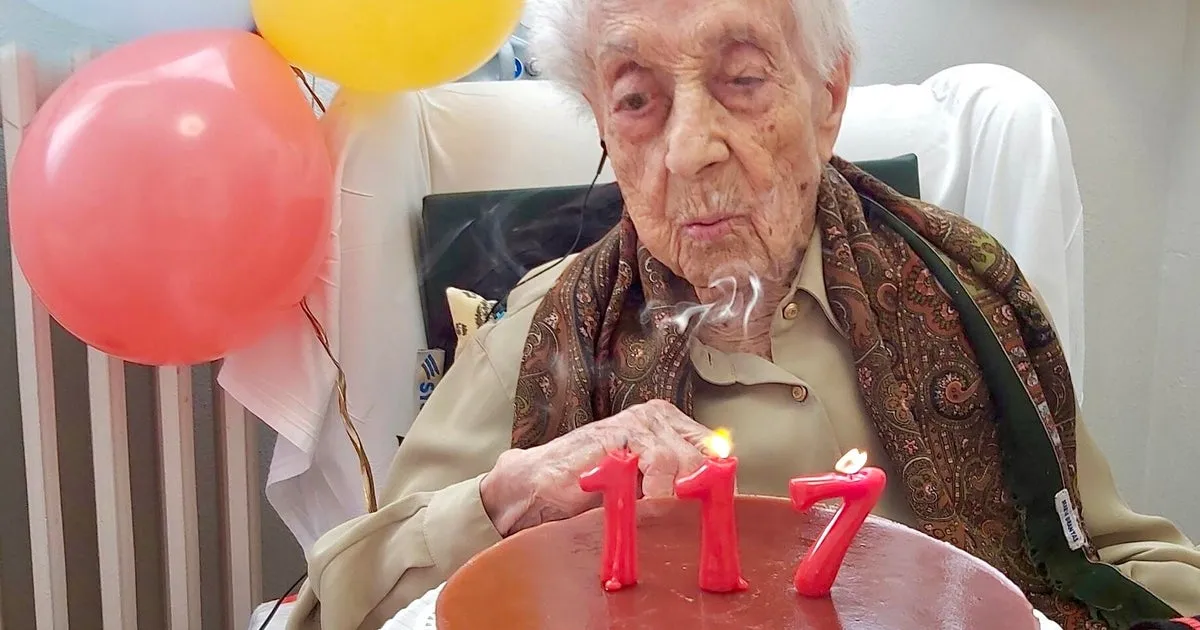
Maria Branyas Morera, who passed away last year at the remarkable age of 117 years and 168 days, was recognized as the oldest known person in the world. Before her passing, Branyas expressed a wish for medical professionals to study her unique health profile. Dr. Manel Esteller, the chairman of Genetics at the University of Barcelona's School of Medicine, dedicated three years to analyzing Branyas' health and lifestyle, leading to significant findings about the factors contributing to her extraordinary longevity.
A study published online recently by Esteller and his team reveals that a combination of hereditary factors and lifestyle choices played a crucial role in Branyas' longevity. According to Esteller, "the clues for extreme longevity are a mix between what we inherited from our parents and what we do in our lives." He suggests that this mix can be roughly half genetic and half lifestyle.
Branyas possessed exceptional genetics that offered protection against various disorders. Esteller noted that she had numerous genetic variants previously unidentified in other individuals. Her healthy habits also contributed significantly to her longevity; she abstained from smoking and drinking alcohol and maintained a diet rich in fish, olive oil, and yogurt. Remarkably, she consumed three servings of plain yogurt daily, which, according to Esteller, is beneficial for gut health.
Esteller emphasized that the plain yogurt Branyas favored, devoid of added sugars, replenished her gut with beneficial bacteria. This, in turn, helped combat chronic inflammation, a major contributor to aging and various diseases. "These are good bacteria that provide an advantage to humans," Esteller explained.
While the study indicates a potential link between Branyas' yogurt consumption and her health, it also acknowledges the limitations of the research. The dominance of the Bifidobacterium genus, which is known for its beneficial effects on gut health, cannot be definitively attributed to her yogurt intake without a longitudinal study involving sample collection over several years.
Maria Branyas Morera’s life story is as remarkable as her longevity. Born in 1907 in San Francisco, she moved to Spain at the age of eight. Throughout her life, she survived two world wars and two pandemics, raising three children and enjoying the company of 13 great-grandchildren. Remarkably, she lived a healthy life, free from cancer, cardiovascular disease, or dementia, as noted by Esteller.
The findings from the study, published in Cell Reports Medicine, challenge the common perception that extreme age is inherently linked to poor health. Researchers concluded that both advanced age and health can be analyzed and understood at the molecular level. The study utilized samples from Branyas collected from four different sources: total peripheral blood, saliva, urine, and stool, taken at various times.
However, the researchers caution that aging and extreme longevity are likely highly individualized processes. Therefore, drawing broad conclusions from a single subject's data should be approached with caution.
The life and health of Maria Branyas Morera provide valuable insights into the complex interplay between genetics and lifestyle in influencing longevity. Her story serves as a testament to the potential benefits of healthy habits, like consuming yogurt and maintaining a balanced diet, while also highlighting the importance of ongoing research into the science of aging.